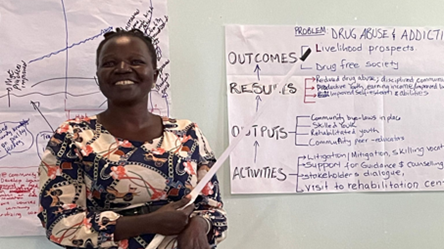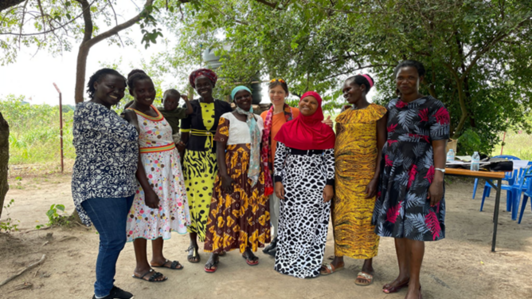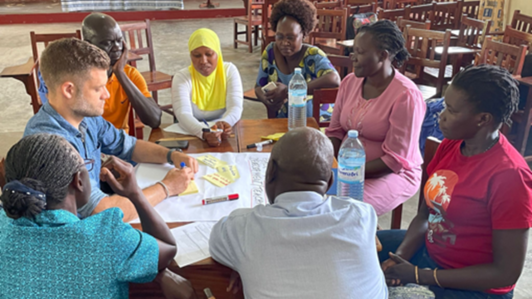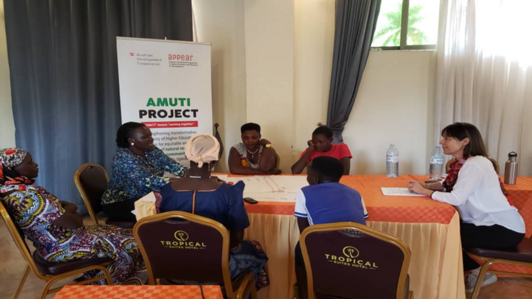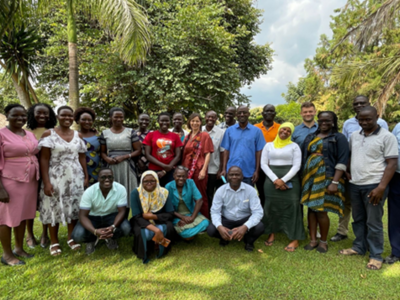

The first project year from 1 March 2023 to 29 February 2024 witnessed significant strides in the project's implementation, marked by robust initiatives, fruitful engagements, and promising achievements.
Key Achievements:
- Capacity Building Initiatives: A pivotal training session was conducted, focusing on the acquisition, management, monitoring, and evaluation of transdisciplinary projects. This session was meticulously designed to align with gender and intersectionality trainings, ensuring inclusivity and equity in all project endeavors. Progress was made towards organizing a second training session aimed at enhancing staff capabilities within participating institutions, particularly focusing on the APPEAR framework, which serves as a guiding principle for sustainable resource management.
- Stakeholder Engagement and Community Involvement: The AMUTI project embarked on the crucial task of identifying and mapping local actors and stakeholders involved in natural resource management and governance. Through snowballing techniques and community engagement strategies, significant progress was made in this endeavor. The successful initiation of the AMUTI kick-off meeting served as a cornerstone, fostering collaboration among partners, stakeholders, and the local community. This collaborative effort laid a robust foundation for the subsequent implementation phases of the project.
- Gender-Transformative Approaches: Gender and intersectionality awareness training sessions were conducted, emphasizing the integration of gender-transformative and intersectional perspectives across all project activities. These sessions aimed to foster inclusivity and address gender disparities within refugee-host communities. Engaging community dialogues focusing on gender and intersectionality proved instrumental in facilitating inclusive discussions with women, men, and youth. These dialogues served as platforms for sharing insights and fostering mutual understanding.
- Involvement of PhD students: The project continued to prioritize the recruitment and active participation of PhD candidates, enabling their engagement in AMUTI activities and facilitating their thesis research within refugee-host communities. Efforts towards enrolling PhD scholars in relevant academic institutions and securing scholarships to support their research endeavors are ongoing, ensuring the sustainability of academic contributions to the project.
Ongoing Efforts:
- Community Engagement and Research Activities: Ongoing participant observation and engagement within refugee-host communities remained a cornerstone of the project's methodology. These efforts aimed at fostering relationships, understanding local dynamics, and identifying relevant actors and initiatives. Community dialogues and focus group discussions continued to be conducted to assess gender dynamics in access to energy sources and understand the status of energy access among women. These activities provided valuable insights for tailored interventions.
- Knowledge Generation and Sharing: Significant progress was made in scoping existing knowledge through literature reviews and field reconnaissance. This groundwork laid the foundation for informed decision-making and the development of sustainable management practices regarding soil, water, and energy resources.
Future Directions: As the AMUTI project looks to the future, several key areas of focus emerge: Strengthening stakeholder engagement and community participation through continued dialogue and collaborative decision-making processes. Enhancing gender-transformative approaches and intersectional perspectives across all project activities to promote inclusivity and equity. Leveraging research findings and knowledge generated to develop actionable strategies and interventions for sustainable resource management. Scaling up successful initiatives and best practices to broader contexts, thereby fostering resilience and enhancing livelihoods within refugee-host communities.
Read more at the project website of AMUTI| Strengthening transformative capacity of Higher Education Institutions for equitable and resilient governance of natural resources in refugee-host community settings in West Nile, Uganda

